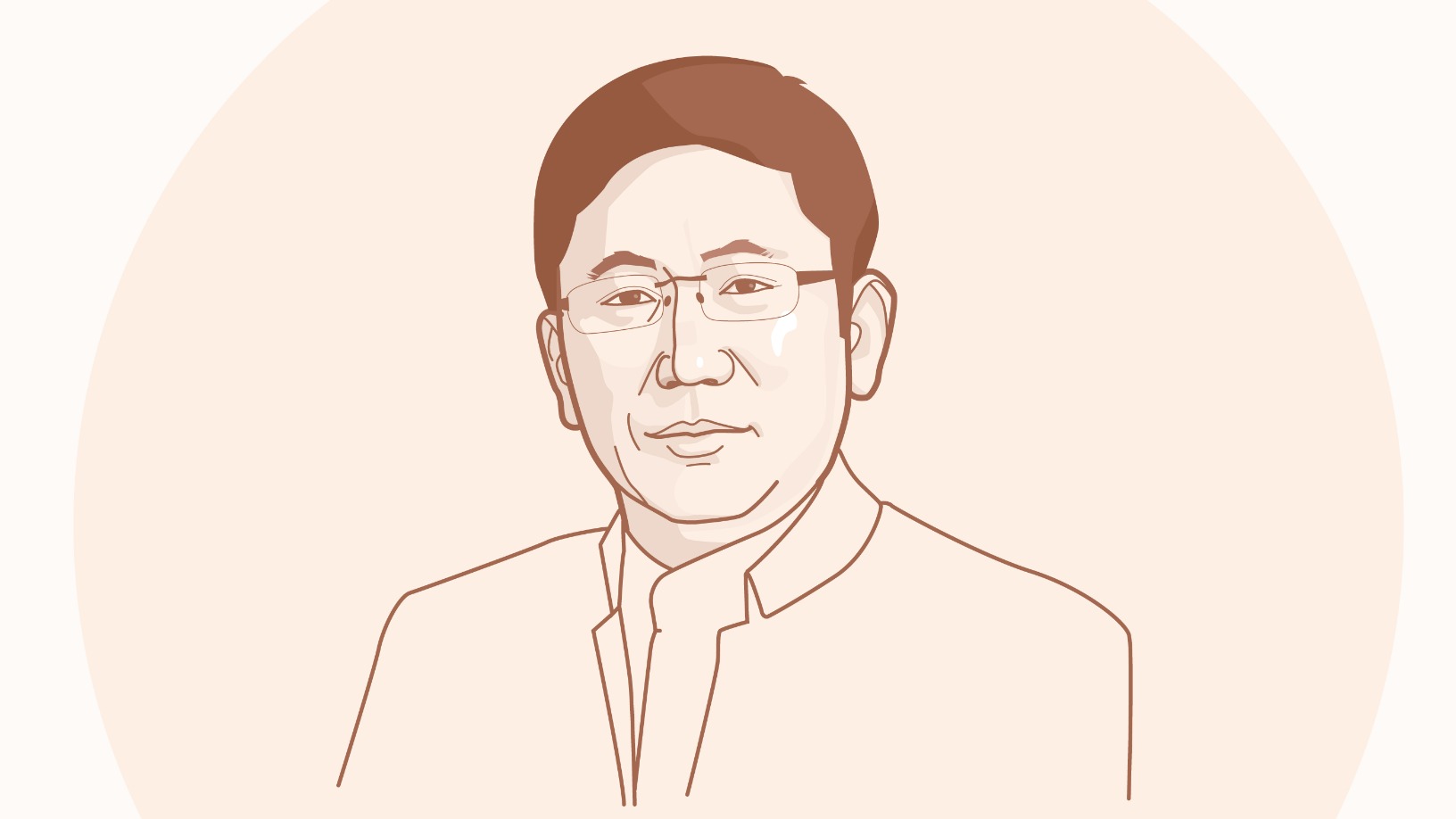Xu Jinghong might be best known for increasing the total assets of Tsinghua Holdings, the tech transfer arm of the prestigious Tsinghua University, to RMB 430bn from RMB 58bn during the six years while he was at the helm. By the time Xu left the company in 2018 to set up his own VC firm, Tsinghua Holdings had grown into a global heavyweight with about 2,000 firms and 14 listed companies in its portfolio, and an R&D capacity ranked third among China’s top 500 enterprises.
Xu first came across Tsinghua University in 1979 in a documentary that he watched on a 9-inch black-and-white TV. He was a teenager then and dreamt of studying there. His dream soon became reality when he was admitted to Tsinghua University the following year, but Xu never thought that he would spend the next 38 years there, first as a mechanical engineering student and then in various roles from administrative staff to business manager.
Twenty years later, in 1999, Xu was appointed executive director of TusPark Development Center, which was was set up to build and manage TusPark, theworld’s largest university-run science park on 100,000 sq km of land. To date, TusPark has incubated nearly 10,000 businesses. TusPark Development Center later became Tus-Holdings. Xu served as the president of Tus-Holdings from 2000–2012 before he became Chairman of Tsinghua Holdings.
“Entrepreneurs in Silicon Valley were lucky to get a complete range of services once they had a good idea,” Xu said. “Their peers in China had to fight alone. It was too difficult.”
Incubator pioneer in China
TusPark was built to address the extremely low rate of conversion of Tsinghua research to businesses, said Xu. “Back in the late 1980s, many technological innovations were generated on campus, but the majority ended up in the archives.“
It was also a time when Chinese universities were rushing to start their own companies. The Chinese Academy of Sciences, for example, founded Lenovo, while Tsinghua University created Unigroup and Peking University, the Founder Group. ”That [trend] actually ushered in a fresh era for China’s new and high-tech companies,” Xu said.
In 1999, when the concept of incubator was still barely known in China, TusPark launched its incubator program TusStar. “We chose to build an incubator, which isn’t money-making, at a time when it was never easier for us to make money [by running other businesses],” said Xu.
He said that when registering TusStar as a corporate entity, the relevant government department staff did not even know what an incubator was. Today, TusStar has more than 100 incubation bases across China and has nurtured 5,000 businesses, 41 of which have gone public.
In September 2006, TusPark launched the Diamond Project, with the aim of building high-tech companies with global influence. "We were going to make shining diamonds out of tech startups," said Xu. Ten years later, in 2016, the first batch of nine “diamond" enterprises, including wireless integrated circuit and software solutions provider Spreadtrum Communications and marine electronics developer and producer Highlander Digital Technology, had all gone public.
The latest batchof diamond companies includes domestic chipmaker Cambricon, which was listed on China’s new STAR market this July. Other Tsinghua companies that went public include software maker Tongfang, semiconductor manufacturerTsinghua Unigroup and science park developer and managerTus-Holdings.
Early bet on semiconductor
Computer and mobilechips have always been high on Xu’s agenda, even before the US restricted supply of the technology to Chinese chip makers like SMIC and Huawei earlier this year, and the Chinese government made chip making a national tech priority.
Xu had set a goal back in 2014 to build Tsinghua Unigroup into a world-class chip maker with the aim of developing home-grown chips. He knew it was not going to be easy, given the lack of resources, especially since the project would be costly.
Undeterred, he led the Tsinghua Unigroup’s acquisition of domestic chip makers Spreadtrum Communications and RDA between 2013 and 2014 and unveiled a plan for Tsinghua Holdings to invest at least RMB 30bnfor the development of mobile chips to help Chinese chip makers catch up with Qualcomm. “We were three to five years behind. If we did not try to narrow the gap, we would never win,” he said.
In 2016 , Xu made semiconductors one of Tsinghua Holdings’ main investment directions for the next five years, as chips represented the most critical technology in China’s so-called Internet Plus era. “Without chips, it’s impossible to see the quick development of the Internet, mobile Internet and IoT,” he said in a 2016 interview, predicting huge growth for China’s semiconductor industry.
A year later, Xu announced another investment plan for Tsinghua Holdings: to spend $10bn in chip-making and a few other critical technologies for healthcare and renewables, with the goal of incubating 500 startups in these areas over the next five years.
New role as VC
After resigning from Tsinghua Holdingsin 2018, Xu started Beijing Zhongguancun Longmen Investment, a Beijing municipal government-backed VC that invests in late-stage startups that have the potential to become leading players in their respective sectors and gain RMB 100bn in market value.
“Investment is the most direct help that entrepreneurs can get to speed up the industrialization and commercialization of technological achievements,” said Xu. “This is the reason why I became an investor.”
Zhongguancun Longmen Investment’s portfolio currently includes Qi An Xin Technology, one of China’s biggest cybersecurity companies, which was listed in Shanghai this July; and Beijing Immunochina Pharmaceutical, which develops innovative gene and cell therapies for treatment of malignant tumors.
The VC firm sets out to be not only a provider of funds, but, more importantly, as an enabler. “We not only inject cash but also give whatever assistance startups need,” Xu said. The firm runs the Longmen Bootcamp, for instance, to offer startup training and individualized services. “Depending on what they need, we will provide a full-range of supporting services, including government relationship, business cooperation, R&D, consultancy, market access, funding and media exposure.”
Xu wants to pass the insights he has acquired over the many decades to younger-generation entrepreneurs, “either as a mentor or friend.“ He talks to young people interested in starting businesses, advising them to look beyond the technologies themselves. “You don’t have to be tech experts, but you have to be very clear about the various impact of emerging technologies – materials, the Internet, 5G or blockchain – on what you are doing now," he said. "You have to anticipate trends and prepare for them.”
Xu has also stressed the value of government policy in driving entrepreneurship in China. “Starting and running a business in China might be different from that in Silicon Valley or other countries because our government plays a very powerful role,” he said. “Policy changes and government support will have huge impacts on businesses.”
This also explains why Zhongguancun Longmen Investment chooses to support businesses that align with the government’s innovation-driven development strategy, which requires exploring key areas of science and technology and using the results to accelerate the country’s economic transformation through high-tech development.











